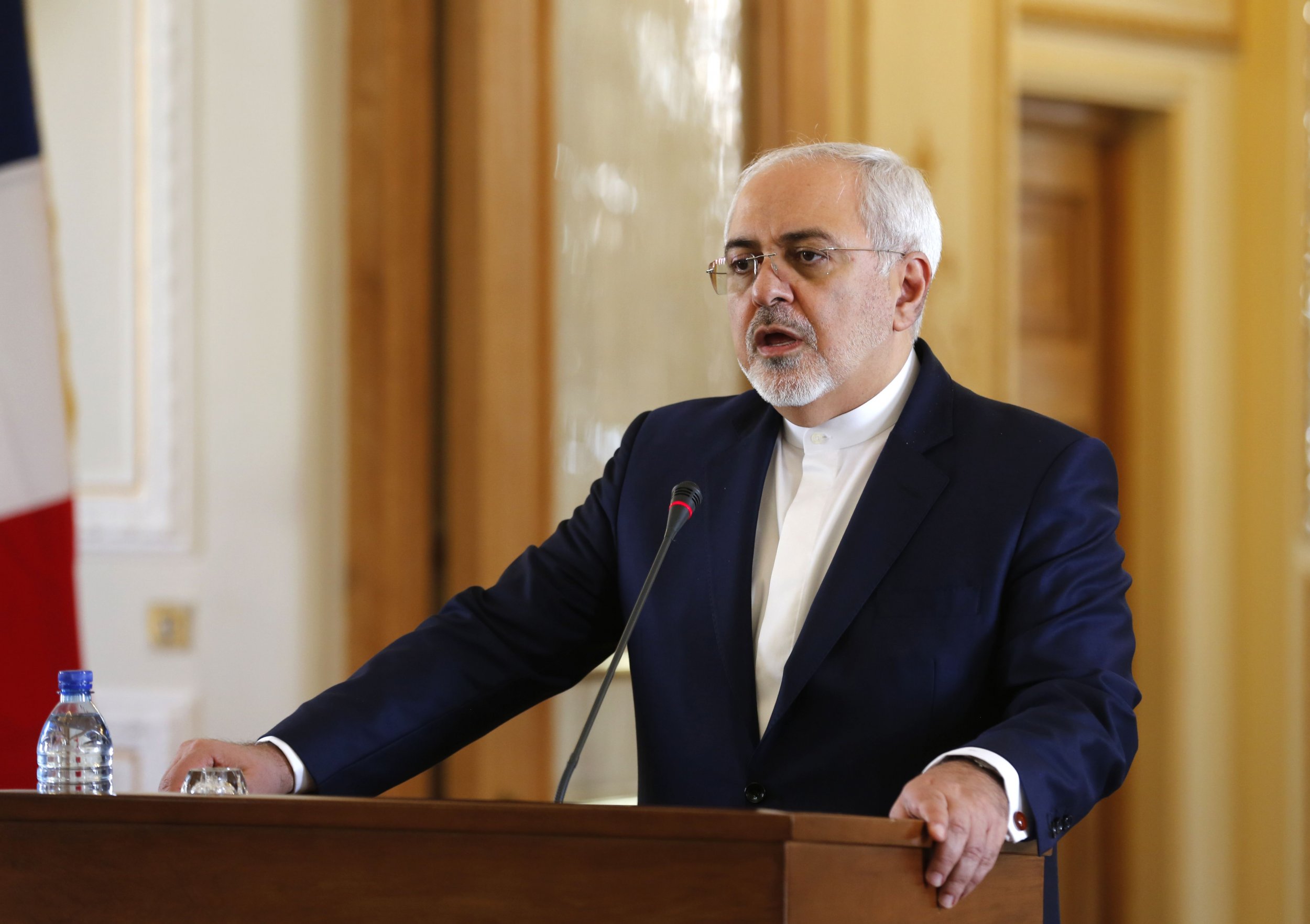
A U.S. push to change the Iran nuclear deal was sending a "very dangerous message" that countries should never negotiate with Washington, Iran's foreign minister warned as U.S. and North Korean leaders prepared to meet for denuclearization talks.
Speaking to reporters in New York on Saturday, Mohammad Javad Zarif also said that for French President Emmanuel Macron and German Chancellor Angela Merkel "to try to appease the president (Donald Trump) would be an exercise in futility."
Trump will decide by May 12 whether to restore U.S. economic sanctions on Tehran, which would be a severe blow to the 2015 pact between Iran and six major powers. He has pressured European allies to work with Washington to fix the deal.
Macron and Merkel are both due to meet with Trump in Washington this week.
"The United States has not only failed to implement its side (of the deal), but is even asking for more," said Zarif, who is in New York to attend a U.N. General Assembly meeting.
"That's a very dangerous message to send to people of Iran but also to the people of the world - that you should never come to an agreement with the United States because at the end of the day the operating principle of the United States is 'what's mine is mine, what's yours is negotiable,'" he said.
In a report on human rights released by the State Department Saturday, China, Russia, Iran and North Korea were singled out as "morally reprehensible" governments that it said violated human rights within their borders on a daily basis, making them "forces of instability."
U.S. Ambassador to the United Nations Nikki Haley said earlier this month that North Korean leader Kim Jong Un has "looked at the Iran deal, he's seen what he can get and he's seen how he can push through loopholes and we're not going to let that happen again."
Under the Iran nuclear deal, Tehran agreed to curb its nuclear program in return for relief from economic sanctions. Trump's predecessor, Barack Obama, struck the pact to try to keep Iran from building a nuclear weapon but Trump believes it has "disastrous flaws."
Zarif said if Washington leaves the deal, there were many options being considered by Tehran, including complaining through a dispute mechanism set up by the agreement or simply leaving the deal and restarting its nuclear activities.
"We will make a decision based on our national security interests when the times comes. But whatever that decision will be, it won't be very pleasant to the United States," he said.
When asked if Iran could stay in the deal with the remaining parties, Zarif said: "I believe that's highly unlikely because it is important for Iran to received the benefits of the agreement and there was no way Iran would do a one-sided implementation of the agreement."
Iran has always said its nuclear program was only for peaceful purposes and Zarif said if Tehran resumed its nuclear activities it would not be intended "to get a bomb."
"America never should have feared Iran producing a nuclear bomb, but we will pursue vigorously our nuclear enrichment. If they want to fear anything, it's up to them," Zarif said.
Uncommon Knowledge
Newsweek is committed to challenging conventional wisdom and finding connections in the search for common ground.
Newsweek is committed to challenging conventional wisdom and finding connections in the search for common ground.
About the writer
To read how Newsweek uses AI as a newsroom tool, Click here.








